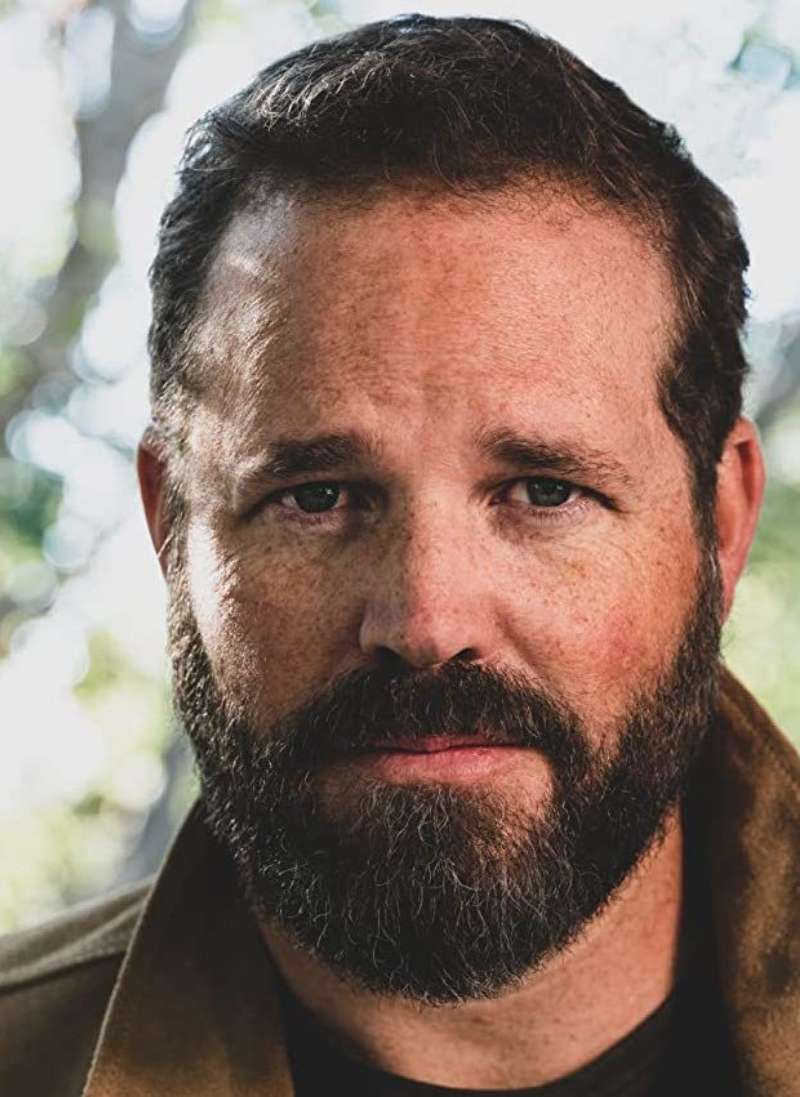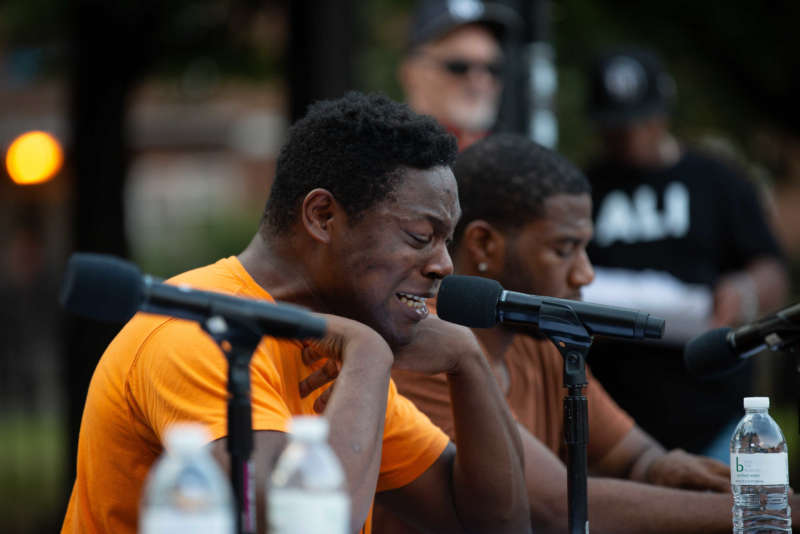Open to Public
Theater of War: Hector, Andromache, and the Death of Astyanax UCSD
Translated, directed, and facilitated Bryan Doerries
Free Event
Thu, Mar 06.2025
Theater of War: Hector, Andromache, and the Death of Astyanax presents live, dramatic readings of selections from Homer’s Iliad, Book VI and scenes from The Trojan Women by Euripides—featuring acclaimed actors and a Chorus of UCSD students and community members, from a variety of backgrounds, whose lives have be impacted by war—to help frame powerful dialogue about the human cost of war, centered on the suffering of children and civilians.
Featuring performances by Taylor Schilling (Orange is the New Black, Dear Edward), David Denman (The Office, Mare of Easttown), Tate Donovan (Friends, The Holdovers), and April Grace (Magnolia, Star Trek: Picard).
Translated, directed, and facilitated by Bryan Doerries.
This event is sponsored by the UCSD Center for Hellenic Studies and ArtPower at UC San Diego.
This free, public, live hybrid event will take place on Zoom Webinar, broadcast from Epstein Family Amphitheater. In person registration does not guarantee you a seat. Please arrive by 6:30pm. If you choose to join us online, this event can be accessed on personal devices. The event Zoom link will be distributed via email and available to registered attendees starting two days prior to the event. This event will be Captioned in English on Zoom.
All of Theater of War Productions' events follow the same format:
- The performers will read the text.
- Community panelists will kick off the discussion with their gut responses to what resonated with them across time.
- We will open the discussion to the audience, facilitated by Bryan Doerries. To participate in the discussion online, please raise your hand using the button at the bottom center of the screen. If called upon, please accept the invitation to be promoted to speak and you will be visible and heard by the entire audience for the duration of your comments. If you would prefer not to be seen, please disable your video.
About the plays
-
Iliad, Book VI by Homer
The Trojan warrior Hector is confronted by his wife Andromache, who begs him not to return to the battlefield where she knows he will die. Hector explains the reasons he must leave her and their young son Astyanax to go back to battle and to his inevitable death. As he parts ways with his family, Hector reaches out to embrace his son, but Astyanax recoils in fear at the sight of his father’s helmet, which Hector removes before kissing and holding his son one last time.
-
The Trojan Women by Euripides
The selected scenes from Euripides’ Trojan Women take place at the end of the Trojan War, after Hector has been slain and Troy has been destroyed. Andromache and her son Astyanax are led through the ruins of the city on a wagon with Hector’s helmet and amour piled next to them. Andromache is being taken away by Achilles’ son Neoptolemus to live as his concubine and slave. The women of Troy, who have all lost their husbands in battle, mourn Andromache’s fate, as well as their own. Suddenly, a herald arrives and announces that the Greek army has decided to execute Astyanax by throwing him off the Trojan towers to prevent him from one day avenging his father’s death. Andromache says goodbye to her son before he is taken away and executed by Odysseus and she is taken from Troy on Neoptolemus’ ship. In the final scene, Astyanax’ body is brought to his grandmother Hecuba, the Queen of Troy, and the play ends with a funeral procession in which Astyanax is buried on his father’s shield while the remains of Troy are burned to ashes.
Cast Members
-

April Grace
-

Taylor Schilling
-

David Denman
-

Tate Donovan
Explore Projects
-
 RacismThe Drum Major Instinct
RacismThe Drum Major InstinctCommissioned by BRIC, The Drum Major Instinct engages audiences in dialogue about racism and inequality. The performance features a dramatization of Dr. Martin Luther King Jr.’s final sermon, embodied by prominent actors and supported by a large gospel choir, composed of singers, activists, police officers, and musicians from St. Louis, MO, and Brooklyn, NY.
-
 Addiction & Substance AbuseAddiction Performance Project
Addiction & Substance AbuseAddiction Performance ProjectDesigned to raise awareness about opiate addiction and alcohol abuse, the project is intended to promote dialogue about helping those who are struggling with addiction.
-
 Gun ViolenceHercules
Gun ViolenceHerculesDrawing from an ancient Greek tragedy about a vicious act of violence committed by an angry man with an invincible weapon, this project aims to generate powerful dialogue between concerned citizens, members of the law enforcement community, victims and perpetrators of gun violence, and the general public.